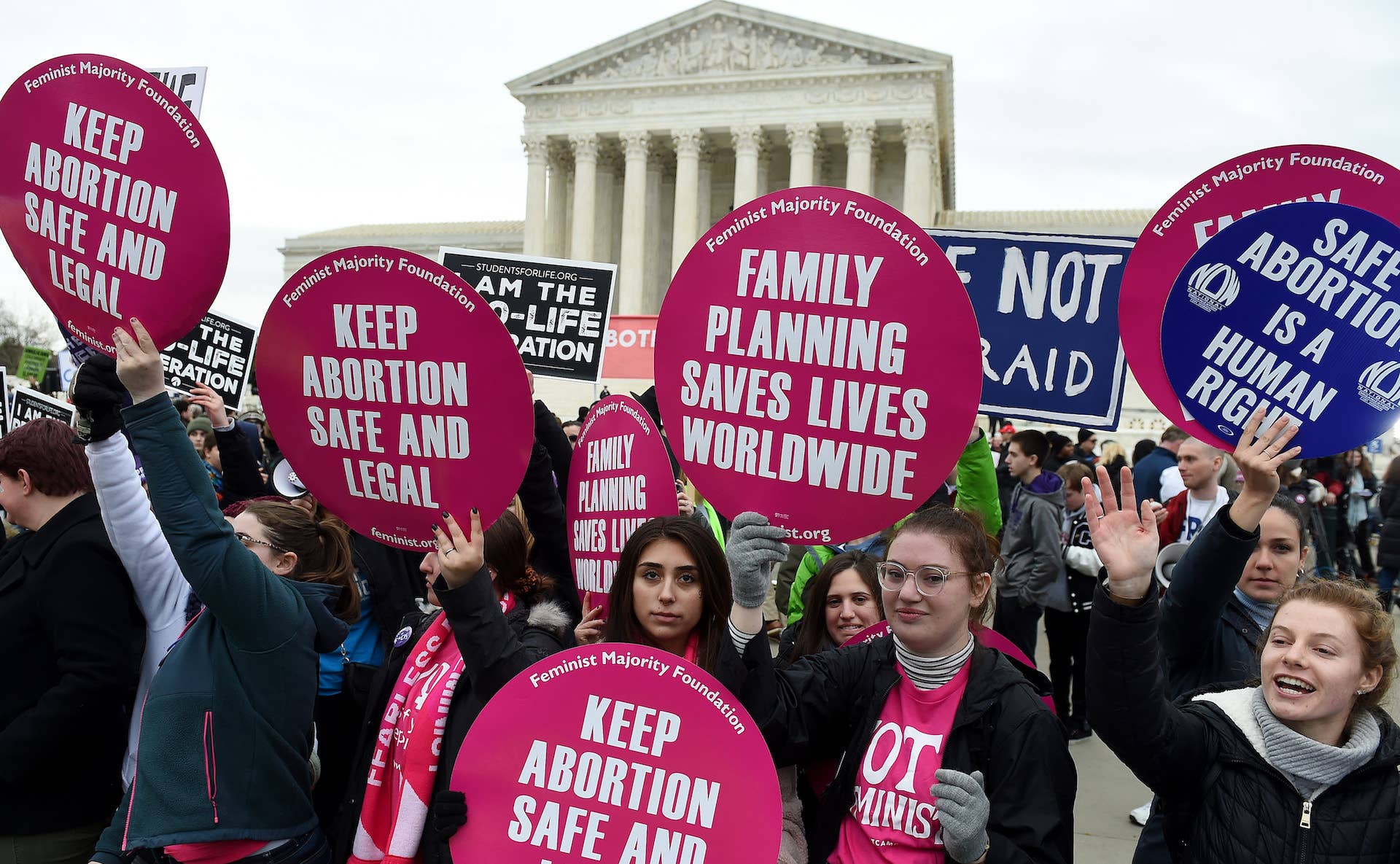
The U.S. Department of Justice has sued Texas over its new law that prohibits nearly all abortions in the state.
Attorney General Merrick Garland announced the lawsuit Thursday, about a week after the measure went into effect. The legislation—Senate Bill 8, aka the “Heartbeat Bill”—prohibits abortions after six weeks from conception, when most women are unaware of their pregnancy. The law makes no exceptions for cases of rape or incest.
SB8 enables private citizens to sue suspected violators of the law (excluding the person who received an abortion), such as doctors who perform the procedures or anyone who financially backs them.
“The act is clearly unconstitutional under long-standing Supreme Court precedent,” Garland told reporters, explaining the DOJ is seeking a permanent injunction against SB8. “This kind of scheme to nullify the Constitution of the United States is one that all Americans, whatever their politics or party, should fear. If it prevails, it may become a model for action in other areas by other states and with respect to other constitutional rights and judicial precedents. nor need one think long or hard to realize the damage that would be done to our society if states were allowed to implement laws that empower any private individual to infringe on another’s constitutionally protected rights in this way.”
Sources said the DOJ was preparing to sue Texas over SB8 after the U.S. Supreme Court voted, 5-4, not to block the law.
“In reaching this conclusion, we stress that we do not purport to resolve definitively any jurisdictional or substantive claim in the applicants’ lawsuit,” the Supreme Court’s decision read. “In particular, this order is not based on any conclusion about the constitutionality of Texas’s law, and in no way limits other procedurally proper challenges to the Texas law, including in Texas state courts.”
Womens rights activists and abortion providers expressed concern over the ruling, saying it may allow other GOP-controlled states to impement similar laws.
“If another state uses the same kind of provisions to deprive its citizens of their constitutional rights, we will bring the same kind of lawsuit,” Garland said.
Shortly after the law was enacted, President Joe Biden vowed to “launch a whole-of-government effort” to defend “safe and legal” abortion access in the Lone Star State, and reassured the public his administration would evaluate all options to protect Roe vs. Wade.

